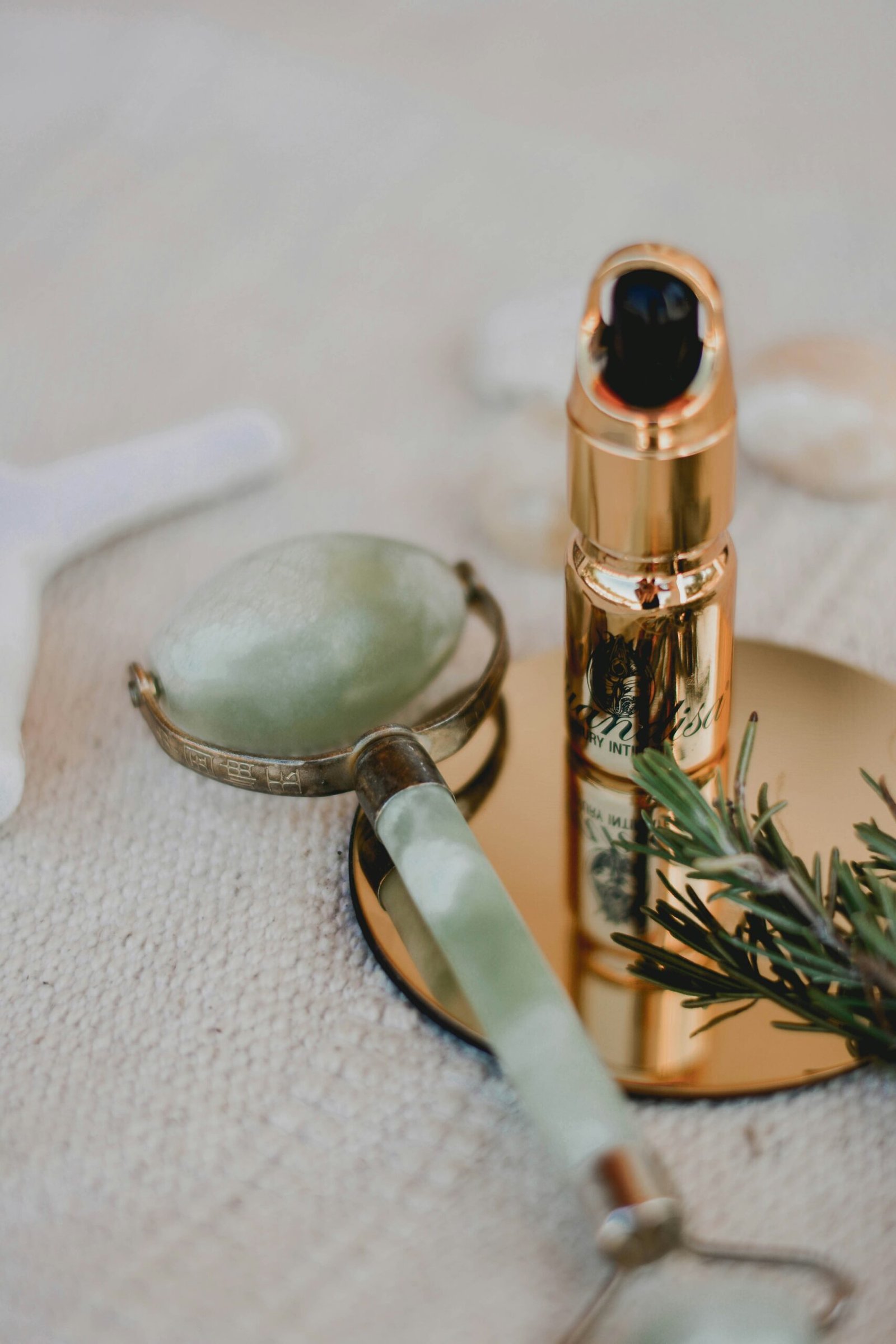Unlock Your Best Skin: Must-Have Products for Every Skin Type

One of the most important steps in any skincare routine is cleansing. Regardless of your skin type, it is crucial to cleanse your face twice a day to remove dirt, oil, and impurities that can clog your pores and lead to breakouts. However, the type of cleanser you use will depend on your specific skin type.
For those with dry skin, a gentle, hydrating cleanser is ideal. Look for a cleanser that is free of harsh ingredients like sulfates and alcohol, as these can strip the skin of its natural oils and further exacerbate dryness. Instead, opt for a creamy or oil-based cleanser that will help to replenish moisture and leave your skin feeling soft and nourished.
If you have oily skin, a foaming or gel cleanser is recommended. These types of cleansers are designed to remove excess oil and unclog pores without stripping the skin. Look for ingredients like salicylic acid or tea tree oil, which have clarifying properties and can help to control oil production.
Combination skin can be a bit trickier to care for, as it requires a balance between hydrating and oil-controlling products. A gentle cleanser that is suitable for all skin types, such as a gel or cream cleanser, is a good option. You can also consider using a mild exfoliating cleanser a few times a week to remove dead skin cells and promote a more even skin tone.
Lastly, if you have sensitive skin, it’s important to choose a cleanser that is free of fragrance and other potential irritants. Look for gentle, non-comedogenic cleansers that are specifically formulated for sensitive skin. These cleansers will help to soothe and calm any redness or irritation, leaving your skin feeling refreshed and balanced.
In addition to a cleanser, another essential skincare product that is suitable for all skin types is a moisturizer. Regardless of whether you have dry, oily, combination, or sensitive skin, moisturizing is a crucial step in maintaining healthy skin. A moisturizer helps to hydrate and nourish the skin, creating a protective barrier that locks in moisture and prevents water loss.
For those with dry skin, a rich, emollient moisturizer is recommended. Look for ingredients like hyaluronic acid, shea butter, or ceramides, which help to deeply hydrate the skin and restore its natural moisture balance. These moisturizers will leave your skin feeling soft, smooth, and supple.
If you have oily skin, you may be tempted to skip moisturizer altogether. However, this can actually make your skin produce more oil in an attempt to compensate for the lack of moisture. Instead, opt for a lightweight, oil-free moisturizer that will provide hydration without clogging your pores. Look for ingredients like niacinamide or hyaluronic acid, which help to regulate oil production and keep your skin balanced.
Combination skin can benefit from using different moisturizers on different areas of the face. For example, you can use a lightweight, oil-free moisturizer on your T-zone to control oiliness, and a richer moisturizer on the drier areas of your face. This will help to address the specific needs of each area, leaving your skin balanced and hydrated.
Lastly, if you have sensitive skin, it’s important to choose a moisturizer that is free of potential irritants like fragrance and dyes. Look for gentle, hypoallergenic moisturizers that are specifically formulated for sensitive skin. These moisturizers will help to soothe and calm any redness or irritation, leaving your skin feeling comfortable and protected.
In conclusion, while each person has a unique skin type with its own set of needs and concerns, there are essential skincare products that are suitable for every skin type. By incorporating a gentle cleanser and a moisturizer that is tailored to your specific needs, you can achieve healthy, glowing skin. Remember to listen to your skin and adjust your skincare routine as needed, as your skin’s needs may change over time.
Cleanser
A cleanser is the foundation of any skincare routine. It helps to remove dirt, oil, and impurities from the skin, leaving it clean and refreshed. Regardless of your skin type, it’s important to choose a cleanser that is gentle and non-stripping.
For dry skin, opt for a creamy or oil-based cleanser that will help to hydrate and nourish the skin. Look for ingredients like hyaluronic acid and ceramides, which help to lock in moisture. These ingredients work by attracting and retaining water in the skin, preventing dryness and promoting a plump and youthful appearance.
If you have oily skin, a gel or foaming cleanser can help to remove excess oil and unclog pores. Look for ingredients like salicylic acid or tea tree oil, which have anti-inflammatory and antimicrobial properties. Salicylic acid is a beta-hydroxy acid that penetrates deep into the pores, dissolving oil and exfoliating dead skin cells. Tea tree oil, on the other hand, has natural antibacterial properties that can help to reduce acne-causing bacteria.
Combination skin can benefit from a gentle cleanser that balances oil production without drying out the skin. Look for a cleanser that is labeled for combination or normal skin. These cleansers are formulated to remove excess oil from the T-zone while still providing enough hydration for the drier areas of the face.
For sensitive skin, it’s important to choose a cleanser that is fragrance-free and hypoallergenic. Look for gentle ingredients like aloe vera or chamomile, which help to soothe and calm the skin. Aloe vera is known for its anti-inflammatory properties and can help to reduce redness and irritation. Chamomile, on the other hand, has soothing and healing properties that can help to alleviate sensitivity and promote a healthy complexion.
When choosing a cleanser, it’s also important to consider your personal preferences and lifestyle. Some people may prefer a cleanser that lathers, while others may prefer a more gentle and non-foaming formula. Additionally, if you wear makeup or sunscreen on a daily basis, you may want to consider using a double cleansing method. This involves using an oil-based cleanser to remove makeup and sunscreen, followed by a water-based cleanser to remove any remaining residue and impurities.
In conclusion, a cleanser is an essential step in any skincare routine. By choosing the right cleanser for your skin type and needs, you can effectively remove impurities and maintain a healthy and radiant complexion.
No matter what your skin type is, finding the right moisturizer is essential for maintaining healthy and hydrated skin. Moisturizers play a crucial role in any skincare routine as they help to replenish moisture, lock it in, and create a protective barrier against environmental stressors.
When it comes to dry skin, it requires a moisturizer that provides intense hydration. Look for rich and creamy formulas that contain ingredients like shea butter or glycerin. These ingredients are known for their ability to deeply nourish the skin and replenish moisture levels. They create a protective barrier on the skin’s surface, preventing further moisture loss throughout the day.
On the other hand, if you have oily skin, you should opt for a lightweight and oil-free moisturizer. These formulas won’t clog pores or feel greasy on the skin. Look for ingredients like hyaluronic acid or niacinamide, which help to hydrate the skin without adding excess oil. Hyaluronic acid is a humectant that attracts and retains moisture, while niacinamide helps to regulate oil production and minimize the appearance of pores.
Combination skin requires a moisturizer that strikes a balance between hydration and oil control. Look for lightweight and non-greasy formulas that are specifically labeled for combination or normal skin. These moisturizers are designed to provide adequate hydration to dry areas of the skin while keeping oily areas shine-free.
For those with sensitive skin, it’s crucial to choose a moisturizer that is fragrance-free and formulated for sensitive skin. Fragrances can be irritating to sensitive skin and may cause redness or inflammation. Instead, look for ingredients like ceramides or colloidal oatmeal, which have soothing properties and help to strengthen the skin’s natural barrier. These moisturizers will provide gentle hydration without causing any irritation or discomfort.
Remember, finding the right moisturizer for your skin type is a personal journey. It may take some trial and error to find the perfect match, but once you do, your skin will thank you. Incorporating a moisturizer into your daily skincare routine is a simple yet effective way to keep your skin healthy, hydrated, and protected.
If you have sensitive skin, it’s important to choose a sunscreen that is specifically formulated for your skin type. Look for a formula that is fragrance-free and labeled as hypoallergenic and gentle. These sunscreens are designed to minimize the risk of irritation and allergic reactions, making them suitable for even the most sensitive skin.
In addition to being fragrance-free, sensitive skin sunscreens often contain soothing ingredients like aloe vera or chamomile extract. These ingredients help to calm and nourish the skin, reducing redness and inflammation that can be caused by sun exposure.
When applying sunscreen to sensitive skin, it’s important to be gentle and avoid rubbing or tugging at the skin. Instead, pat the sunscreen onto the skin using light, upward motions. This will help to minimize any potential irritation and ensure that the sunscreen is evenly distributed.
It’s also worth noting that sensitive skin sunscreens are often formulated with physical blockers like zinc oxide or titanium dioxide. These ingredients create a physical barrier on the skin’s surface, reflecting and scattering UV rays away from the skin. This is particularly beneficial for sensitive skin, as it reduces the risk of irritation and provides effective sun protection.
Overall, choosing a sunscreen that is specifically formulated for sensitive skin is essential for maintaining the health and appearance of your skin. By opting for a fragrance-free, hypoallergenic formula, you can protect your skin from the sun’s harmful rays without causing any unnecessary irritation. So, make sure to prioritize sunscreen in your skincare routine, regardless of your skin type, and keep your skin healthy and protected.
Toner
A toner is an optional but beneficial step in a skincare routine. It helps to balance the pH level of the skin, remove any remaining impurities, and prepare the skin for the next steps of the routine.
For dry skin, choose a hydrating toner that helps to replenish moisture and soothe the skin. Look for ingredients like rose water or glycerin, which have hydrating properties.
If you have oily skin, opt for a toner that helps to control oil production and minimize the appearance of pores. Look for ingredients like witch hazel or tea tree oil, which have astringent properties.
Combination skin can benefit from a toner that helps to balance oil production without drying out the skin. Look for a toner that is labeled for combination or normal skin.
For sensitive skin, it’s important to choose a toner that is alcohol-free and formulated for sensitive skin. Look for a toner that is labeled as gentle and soothing.
Regardless of your skin type, it’s important to choose a toner that is free of harsh chemicals and artificial fragrances. These can irritate the skin and cause further damage. Instead, opt for natural and gentle toners that are specifically formulated for your skin type.
When applying toner, use a cotton pad or your fingertips to gently pat it into the skin. Avoid rubbing or pulling on the skin, as this can cause irritation. Allow the toner to fully absorb before moving on to the next step of your skincare routine.
In addition to balancing the skin’s pH and removing impurities, toners can also provide additional benefits depending on their ingredients. Some toners contain antioxidants, which help to protect the skin from environmental damage. Others may contain exfoliating ingredients like alpha or beta hydroxy acids, which help to remove dead skin cells and promote a brighter complexion.
Overall, incorporating a toner into your skincare routine can help to improve the overall health and appearance of your skin. It’s important to choose a toner that is specifically formulated for your skin type and to use it consistently for best results.
Exfoliator
Exfoliation is an important step in any skincare routine as it helps to remove dead skin cells, unclog pores, and promote cell turnover. However, it’s important to choose an exfoliator that is suitable for your skin type and use it in moderation.
For dry skin, opt for a gentle exfoliator that won’t strip away moisture from the skin. Look for ingredients like lactic acid or fruit enzymes, which help to exfoliate the skin without causing irritation. These ingredients work by breaking down the bonds between dead skin cells, allowing them to be easily removed without causing any dryness or flakiness. Additionally, look for exfoliators that contain moisturizing agents like hyaluronic acid or glycerin to help keep the skin hydrated and nourished.
If you have oily skin, choose an exfoliator that helps to control oil production and remove excess sebum. Look for ingredients like salicylic acid or clay, which have oil-absorbing properties. Salicylic acid is a beta-hydroxy acid that penetrates deep into the pores, dissolving oil and preventing breakouts. Clay, on the other hand, absorbs excess oil and impurities, leaving the skin matte and refreshed. These exfoliators can help to unclog pores, reduce the appearance of blackheads, and regulate oil production, resulting in a clearer and less shiny complexion.
Combination skin can benefit from a gentle exfoliator that helps to balance oil production without drying out the skin. Look for an exfoliator that is labeled for combination or normal skin. These exfoliators often contain a combination of ingredients that address both oily and dry areas of the skin. For example, they may contain gentle acids like glycolic acid or citric acid to exfoliate and brighten the skin, as well as hydrating ingredients like aloe vera or cucumber extract to soothe and moisturize.
For sensitive skin, it’s important to choose an exfoliator that is gentle and non-irritating. Look for a physical exfoliator with fine particles or a chemical exfoliator with mild ingredients like PHA (polyhydroxy acids). Physical exfoliators, such as scrubs or brushes, should have soft bristles or particles that won’t cause micro-tears in the skin. Chemical exfoliators, on the other hand, work by dissolving the bonds between dead skin cells, allowing them to be easily sloughed off. PHA is a gentle acid that exfoliates the skin without causing irritation or redness, making it suitable for sensitive skin types.
Remember, no matter your skin type, it’s important to exfoliate in moderation. Over-exfoliating can lead to dryness, sensitivity, and even inflammation. Start by exfoliating once or twice a week and adjust the frequency based on how your skin responds. Always follow up with a moisturizer to replenish the skin’s hydration and protect its barrier function. With the right exfoliator and a consistent routine, you can achieve a smoother, brighter, and healthier complexion.





